Six months on: How Argentinian women really feel with ‘anarcho-strongman’ Javier Milei in charge
Since Chainsaw-wielding ‘traditionalist’ Javier Milei became president of Argentina, violent attacks have increased and many women feel afraid like never before. Following last week’s firebombing of two lesbian couples, Anna Hart reports from Buenos Aires and hears from women who say it is like ‘being ruled by apes’

Sex education is paedophilia. Abortion is genocide. End the homosexual dictatorship!” Guada Romero, a 40-year-old veterinarian, rolls her eyes as she translates for me the freshly sprayed graffiti defacing a popular feminist mural in La Plata, a city one hour south of Buenos Aires.
It’s 1am on Tuesday and we’ve just left a milonga at the Gaggiotti Raul N dance salon, a traditional dance-music hall, where we watched women in twinsets and pearls and old men in rumpled linen suits tango-dancing alongside young gay couples in boiler suits with asymmetrical haircuts and rockabilly tattoos.
My Argentinian friends brought me here to see how the younger generation – and most notably, the queer community – have reclaimed the tango, the original subversive Argentinian dance. After this, the sight of extremist graffiti comes as a shock.
But these scrawls are also in keeping with the mood of the new Argentina under Javier Milei, who decided that the week of International Women’s Day was a good time to take down the portraits dedicated to female figures in Argentinian history on display in Casa Rosada.
It was on the balcony of this pink-hued presidential palace that, in 1951, Eva Peron addressed thousands of impassioned supporters in Plaza de Mayo. But today, the “Salon de las Mujeres” stateroom has been rebranded the Hall of Heroes, and the female faces have been replaced by those of men.
“They’re trying to destroy the spirit of Argentinian women,” says journalist Lucia Rivera. Women here now openly joke that they shouldn’t be surprised if Milei repaints Casa Rosada blue.
The pettiness and viciousness of this new wave of misogyny is shocking, because Argentina has often led the way when it comes to women’s and LGBT+ rights in Latin America.
In 2010, Argentina became the 10th country in the world to legalise same-sex marriage, three years before the UK. Ever since Peron assumed an active political role alongside her husband, president Juan Peron, in the 1940s, feminism has grown beyond an elitist movement here.
In 2012, Argentina modified its criminal code, and named femicide a new offence, a milestone welcomed by feminist campaigners. In 2019, the Ley Micaela law came into effect. Named after Micaela Garcia, a young woman murdered in 2017, it established compulsory training on gender and violence for public service employees. In 2020, Argentina became the largest Latin American country to legalise abortion, just two years after Ireland.
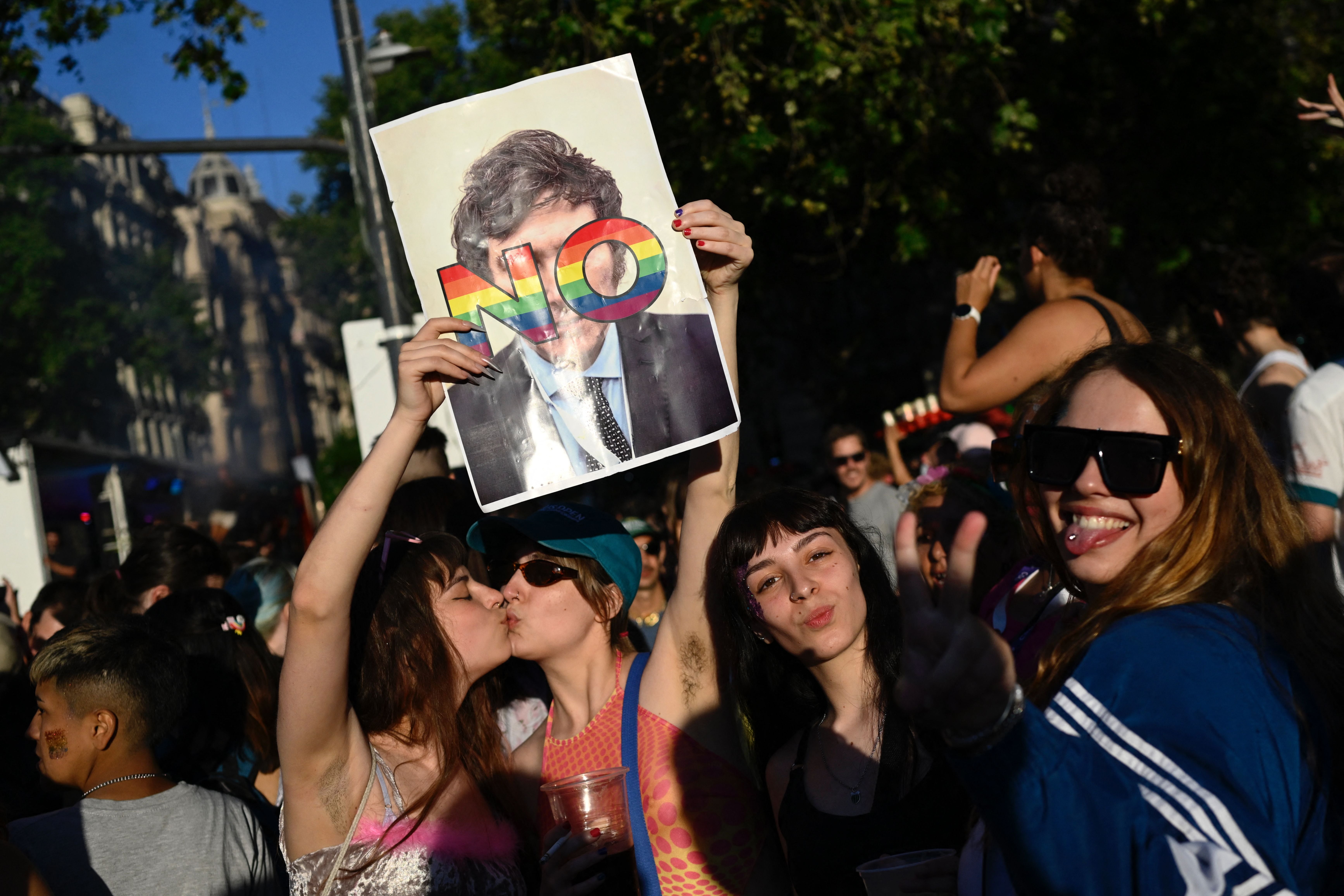
However, since the self-styled “anarcho-capitalist” Javier Milei won the Argentinian presidency six months ago, the change has been palpable. With 56 per cent of the vote, the former TV pundit and shock-jock, who had brandished a chainsaw at a press conference while railing against “socialism”, vowed to lower taxes, privatise state industries, and transform Argentina’s public education and healthcare into systems that are based on private insurance.
In scenes we are now seeing play out in Europe, he pandered to a young generation of disaffected male voters, declaring himself a traditionalist in his stance against abortion and vowing to dissolve the ministry for women, gender and diversity. When pressed on the latter, he responded: “I will not apologise for having a penis,” an incel-baiting machismo soundbite intended to go viral.
For many women, the election of Milei felt like a dangerous step backwards into a ditch. Six months on, Guada says there has been an emboldening and a validation of extremist beliefs.
“Cases of violence of all kinds have increased, including homophobic or transgender attacks,” she says. “Milei’s violent rhetoric empowers people who are anti-feminist or think that homosexuality is a disease. Things people didn’t dare to say out loud, they now can, because the president himself says them.”
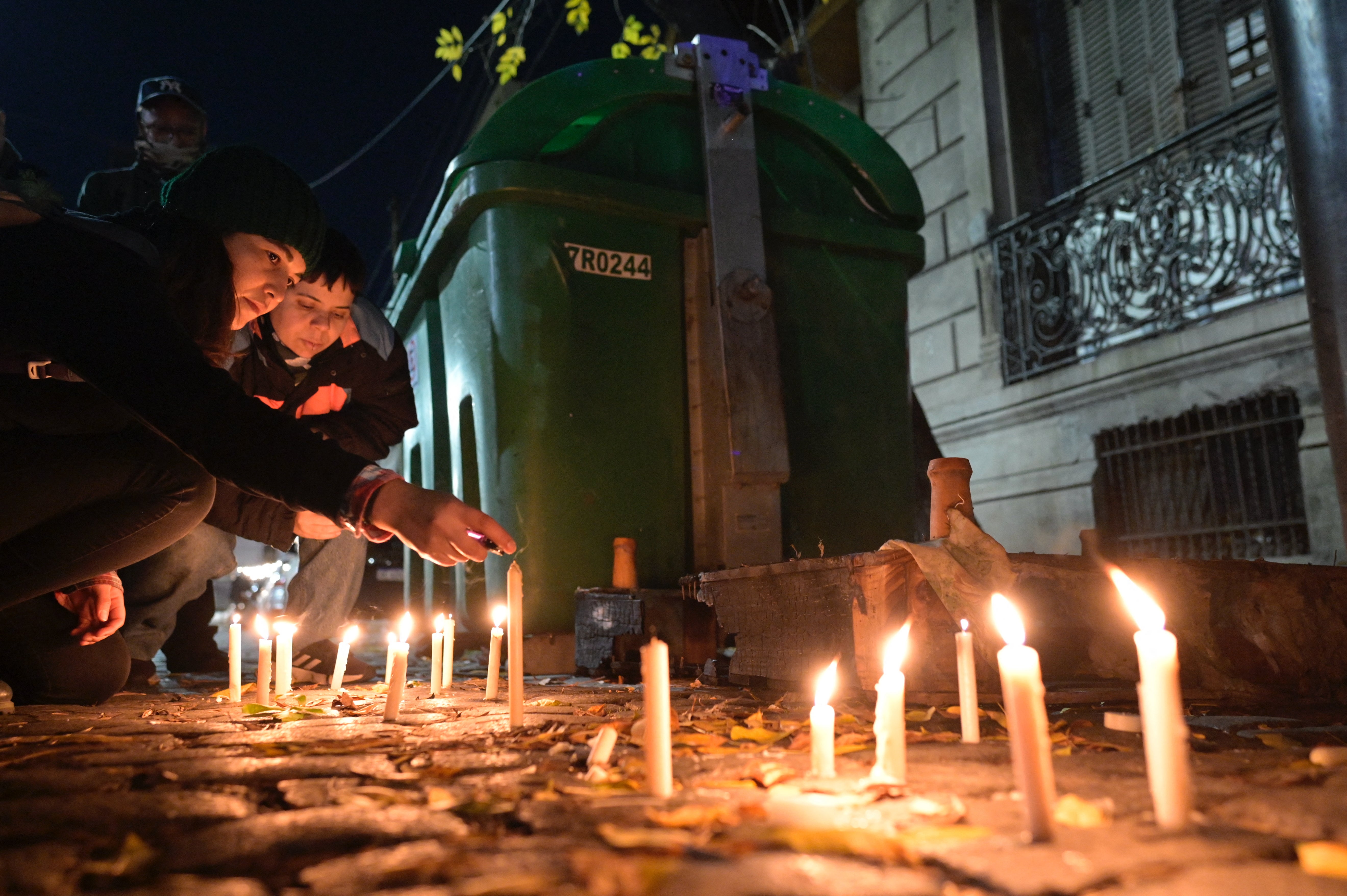
I make a pilgrimage to the Libreria de Mujeresc, a feminist bookstore founded in 1994, to speak to co-founder Carola Caride, an indomitable 74-year-old with a generous smile. Argentinians are prodigiously well read, and as Carola says, “We were the first feminist bookstore to open in Latin America and we are still needed, now more than ever.”
“If this can happen here, it can happen anywhere,” warns Lucia. Five years ago, Lucia co-founded Femitour, a feminist collective operating city tours to educate visitors about women’s history in Buenos Aires.
The tour begins in Puerto Madero, where all the streets are named after notable Argentinian women. Women such as Julieta Lanteri, who fought to get her degree in pharmacology and was the first woman to vote in Latin America in 1911, a right she secured as a college student. (The law was promptly amended so that military service was also required in order to vote.)
I accompany Lucia to one of the near-weekly mass piquetes (blockades) in Plaza del Congreso, peaceful demonstrations that feel more dangerous since Milei proposed new guidelines to crack down on protests. For Argentinians, the right to protest isn’t purely a pillar of democracy – it’s a good way to spend a Saturday afternoon.
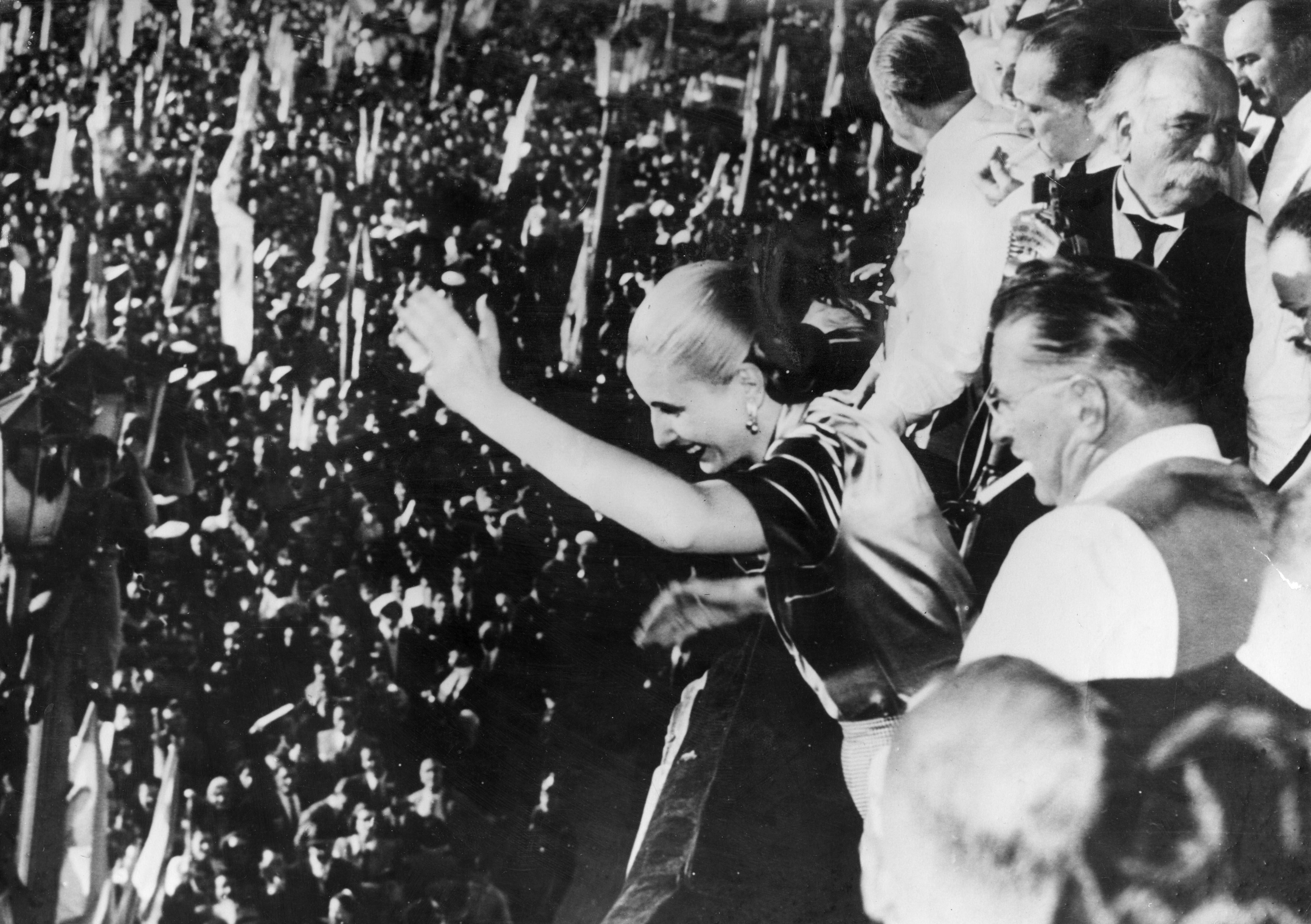
The mood is inclusive and community-minded: there are food vendors selling choripan (chorizo baguette), and families and community action groups arrive en masse with coolboxes and parasols to combat the heat. Lucia, however, is better prepared: in her backpack, she carries lemon and bicarbonate of soda to neutralise teargas. “We haven’t had to be fearful at protests since the 1990s, but we’re all nervous; we really can’t trust the government,” she says.
Milei’s presidency hasn’t simply divided Argentina, it has divided families and torn friendships apart. “My mother voted for Milei, and I didn’t speak to her for weeks,” Lucia tells me, as we drink a post-piquete vermouth in Peron Peron, a favourite Peronist bar.
At Lucia’s suggestion, we call Maria Laura, her mum, so I can ask why she voted for Milei, a decision her daughter cannot understand. Maria Laura sighs. “At the ballot box, I felt I had the choice of voting for a psychotic or a psychopath, and I chose the former, Milei, because I felt he might be less dangerous,” she says. “But don’t get me wrong: both candidates were terrible. I am 67 years old and very disappointed.”
And in six months, disappointment has been replaced by a real sense of danger. Last week, Buenos Aires was rocked by a violent attack on two lesbian couples in Barracas, a district between my old famously LGBT-friendly neighbourhood of San Telmo, and La Plata, where my queer friends and I danced at the milonga.
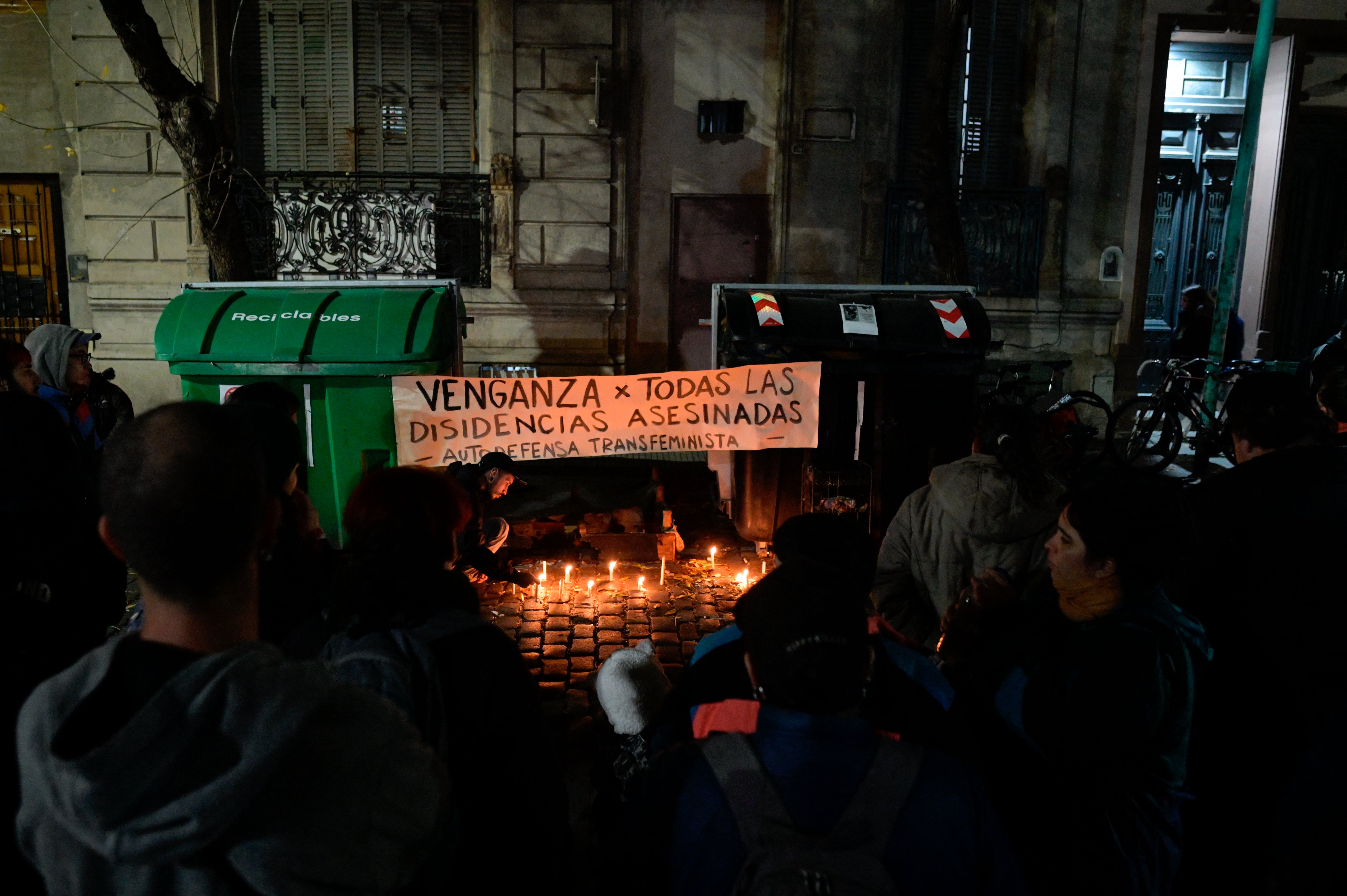
Their neighbour, Justo Fernando Barrientos – who had harassed the women and their friends, calling them “monsters” because of their “sexual condition” – threw a homemade explosive into their apartment as they slept.
Pamela Cobbas, her partner Mercedes Roxana Figueroa and a friend, Andrea Amarante, died of severe burn injuries. Sofia Castro Riglos, Andrea’s partner, remains in hospital. It was the most shocking homophobic attack, and incidence of femicide, in Argentina for decades.
Days before the attack, Milei’s official biographer and supporter, Nicolas Marquez, explicitly linked homosexuality to drug abuse, Aids, smoking and alcoholism in a TV interview, adding: “When the state promotes, encourages homosexuality, as it has done until the appearance of Javier Milei on the scene, it is encouraging self-destructive behaviour.”
Lucia tells me: “It’s all related. Hate speech creates more hate. Right now I need to disassociate from this a bit, or I’d just spend all day in bed crying.”
I call Guada, remembering the fresh graffiti on the walls of La Plata and the sense of dread she shared with me that night. “It’s even worse than we thought it could be,” she says. “The presidential spokesperson argued the attack in Barracas is not a hate crime, when it quite clearly is. I can’t believe this is the world women are having to live in now. It’s like we’re ruled by apes.”
Join our commenting forum
Join thought-provoking conversations, follow other Independent readers and see their replies
Comments
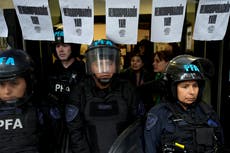
Bookmark popover
Removed from bookmarks